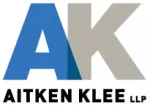The Federal Court has allowed a pre-trial motion to strike expert reports and bar the authors of those reports from testifying at trial. The decision of Justice Diner in Association of Chartered Certified Accountants et al v Canadian Institute of Chartered Accountants et al confirms that this is permitted when expert reports do not satisfy the test for admissibility set out by the Supreme Court.
Justice Diner's pre-trial decision arose in the context of a trade-mark dispute commenced by the Association of Chartered Certified Accountants and Association of Chartered Certified Accountants (UK) in Canada seeking a declaration of invalidity of several trade-marks, among other relief. In advance of a trial scheduled for January, 2017, the Plaintiffs served expert reports sworn by two law professors which opined on the significance of control exercised by the government over the Defendants, a factor in assessing whether the Defendants were "public authorities" within the meaning of s. 9(1)(n)(iii) of the Trade-marks Act. The Defendants responded with a motion in September, 2016, seeking an order that the two expert reports were inadmissible and barring the professors from testifying as expert witnesses at trial.
Justice Diner agreed that the matter of admissibility should be disposed of in advance of trial, as deferring a decision would be unduly prejudicial to the Defendants. He applied the Supreme Court's test for admissibility set out in Mohan which requires expert evidence to be (i) relevant; (ii) necessary to assist the trier of fact; (iii) not subject to any exclusionary rule; and (iv) adduced by a properly qualified expert. On their motion the Defendants argued only that criteria (ii) and (iii) were not satisfied by the expert reports.
On the criterion of necessity, Justice Diner agreed with the Defendants that the expert reports were not necessary. Even though they might have provided a helpful overview, this was not enough to satisfy the test:
[20] In short, the admission of expert opinion evidence is the exception, not the rule. If a Court is able to reach a conclusion based on the facts and their application to the law, without the opinion of experts, then those expert opinions are inadmissible...
[27] ...These particular Reports provide an overview of the Defendants' governance and funding structure, taking into account the relevant legislation, professional codes of conduct, bylaws, annual reports and other publicly available information. Based on this information, both Reports opine on the significance of government control, which is the first part of the two-fold Architects legal test of a "public authority". In my view, the Court must perform this analysis, and such argument is better left for counsel at trial.
Justice Diner's decision on the Mohan necessity criterion was enough for the motion to succeed, but he also addressed the Mohan criterion for absence of an exclusionary rule. The exclusionary rule raised by the Defendants was that the expert reports impermissibly provided an opinion on domestic law. Justice Diner agreed that admission of the reports would violate the "well-established principle that opinion evidence on domestic legal questions usurp the Court's role as the expert of law." The Plaintiffs argued that the exclusionary law did not apply because (i) the question at issue, the degree of government control, was one of mixed fact and law; (ii) the reports did not opine on the ultimate legal issue; and (iii) in the past Canadian Courts have admitted expert evidence on domestic law.
Justice Diner was not persuaded by these arguments. He held that the term "significant government control" was a technical one in law which engaged a legal exercise reserved for the judiciary. He also noted that the reports provided opinions on a part of the legal test which played a "vital" role in determining the Defendants' rights under the Trade-Marks Act, a determination that "goes to the core of the Court's role at trial." With respect to the argument that similar expert evidence had been allowed before, Justice Diner considered prior cases and held that the expert evidence in those cases did not purport to answer a question of law. Although he noted one case which may have been an exception, he distinguished it on the basis that it was not binding on the Federal Court, and was decided prior to relevant jurisprudence from the Supreme and Federal Courts.
Justice Diner's decision has not been published on the Federal Court website but is available here.
The Plaintiffs have appealed this decision.
The content of this article is intended to provide a general guide to the subject matter. Specialist advice should be sought about your specific circumstances.

